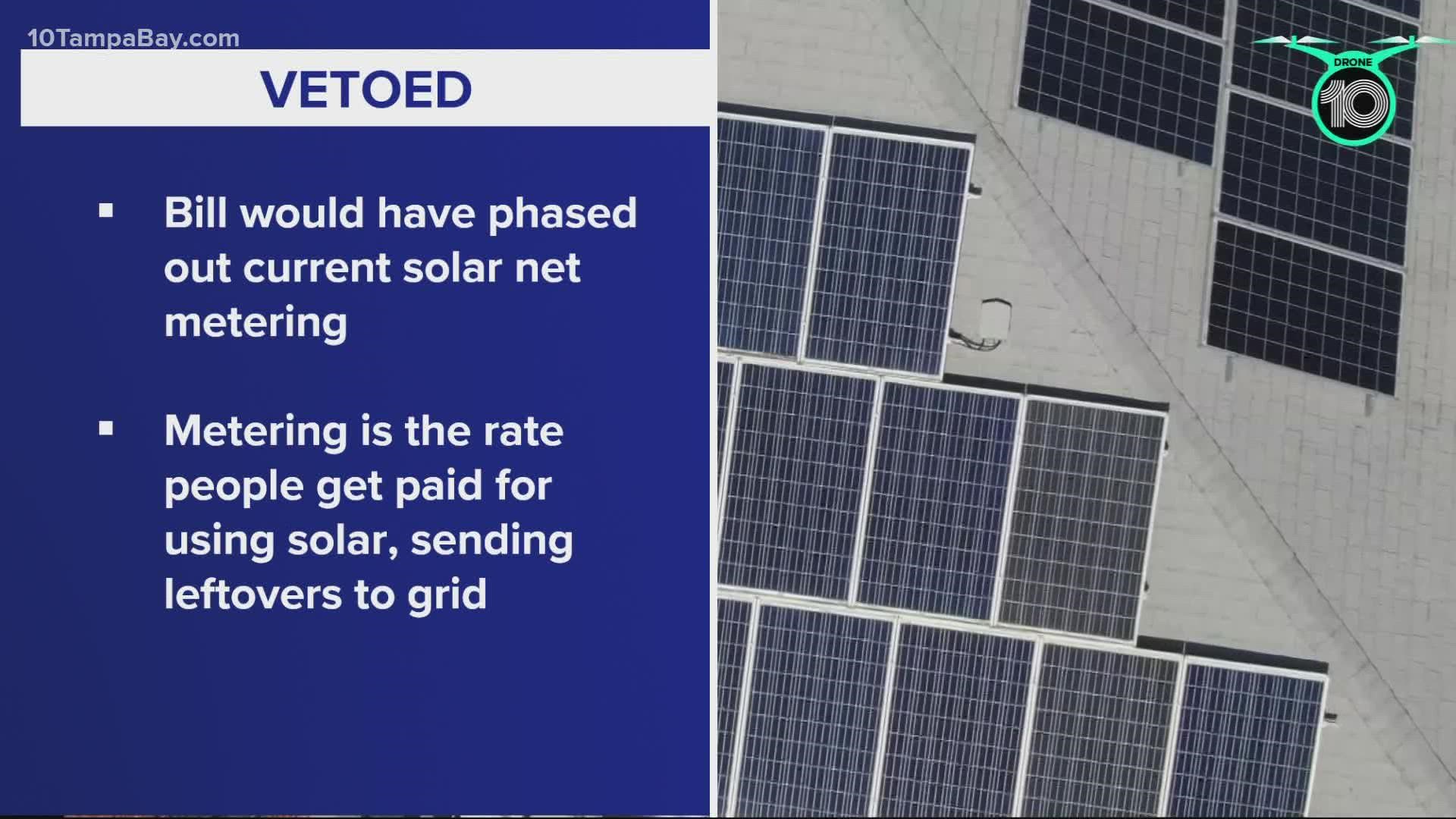TALLAHASSEE, Fla. — On Wednesday, Florida Gov. Ron DeSantis announced he vetoed a bill that would have slowly phased out current solar net metering in Florida.
In a letter, DeSantis said his reasoning for rejecting the legislation was inflation. The governor said that Floridians are already having to deal with price hikes for gas and groceries.
"Given that the United States is experiencing its worst inflation in 40 years and that consumers have seen steep increases in the price of gas and groceries, as well as escalating bills, the state of Florida should not contribute to the financial crunch that our citizens are experiencing," the governor's letter read, in part.
The bill (HB 741) originally passed Florida's Legislature by an 83-31 vote in the House and 24-15 vote in the Senate. If the governor would have signed it into law, the bill would have begun reducing the net metering rate homeowners and business owners get paid.
What is net metering? Essentially, it is a utility billing tool that exists in many states that offers credit for homeowners and business owners who made excess electricity with their solar panels and send it back to the power grid, Sunpower.com explained.
The bill would have given customers 75 percent of energy credit in 2024; the rate would then have dropped to 60 percent in 2026 and down to 50 percent in 2027.
Under the bill, customers who own or lease solar panels and use public utilities would have had until 2029 to lock in a net metering rate for the next 20 years.
The governor's decision to veto the bill was met with praise from both federal and state lawmakers.
Florida Rep. Anna Eskamani gave "kudos" to advocates who criticized and fought against the legislation. However, Eskamani claimed more work had to be done.
"The State of Florida has not championed renewable energy or energy efficiency goals; utility rates for solar customers recently increased and there is still so much political corruption facilitated by companies like FPL that have not been fully uncovered," said Eskamani in a statement, in part.
U.S. Rep. Kathy Castor claimed it was a brighter day in the state thanks to the veto.
"Florida is blessed with abundant and affordable solar energy, and all Floridians should be able to access this renewable resource to help them save money on their electric bills, avoid the volatility of fossil fuel prices, and catalyze the continued growth of the solar industry that creates good-paying jobs and strengthens local economies," said Castor in a statement, in part.

